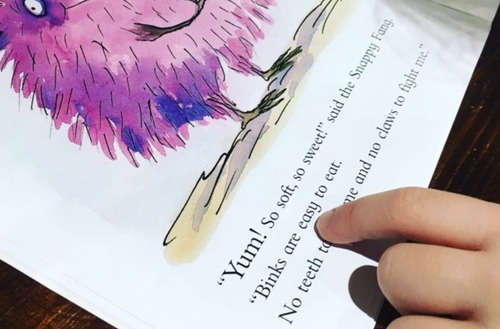Most people know that it’s important to read with their children but there isn’t much guidance on the best way to go about it through the years. Bella Learning gives a teacher’s run down of how to support your child’s reading through primary school.
Reception:
A child’s reading journey starts from birth so by the time children start school, their experience of books will vary widely. Some may already have a love of literature and know some of the letter sounds and others will be completely new to it all. With this in mind, schools will start teaching the mechanics of reading from the beginning through phonics, starting with the letter sounds. This is an exciting time when your child will first start to read for themselves and it is a real time of growth and perseverance. At this stage, it is vital that parents read the school books sent home by the school. These books are leveled and will have been chosen specifically for their ability. The most effective way to teach reading is the ‘little and often’ approach, which is why parents are integral parts of the early reading journey. In a class of 30, a teacher can’t offer this daily practice, but at home you can.
Top Tips:
- Be patient and give them time.to work out the words themselves.
- Get them to read to you and then you read to them. Model what reading looks and sounds like.
- Communicate with the teacher by telling them if the books are getting too easy or are too challenging. Most schools have a reading record that you can write in.
- Keep reading enjoyable books to them so they don’t get weighed down by the process of reading, which can be frustrating in these early stages. Discuss and ask questions about what you read.
Year 1:
Children will typically be becoming more independent as readers and able to access more texts themselves. There is still a heavy focus on phonics in year 1, which culminates in the phonics screening check in June. Keep reading the books that are sent home with and to them and discussing the letter patterns you see. Ask questions and discuss characters and their motivations.
Year 2
By the end of this year, children are expected to be fluent and confident readers, so keep showing them what this looks like by reading to them. Reading books that are slightly out of your child’s reading range, helps them to hear new vocabulary and interesting sentence structures. This will also impact their writing. Take note of punctuation and discuss why it’s there. Take turns reading, changing reader at each full stop. This helps them to internalise where sentences start and stop.
Years 3/4
Often known as the ‘danger’ zone, these years are sometimes forgotten by teachers and parents. It’s often assumed that children can read so don’t need to read aloud anymore but this couldn’t be further from the truth. Even the most fluent of readers still need practice reading more complicated sentences and words aloud. This is a time when you can really impact their understanding through discussion too. Keep enjoying books with your child at this time – including picture books, which often have excellent language and interesting themes. It’s also when your child may start to ‘go off’ reading which is normally because they haven’t found a genre of chapter books that they love. Go to the library and get them to read the first page of various books. If they want to turn over to the next page – great! If not, leave it and try again. It’s tempting to force your child to read what you enjoyed, but let them discover their own tastes. It might be that they are more interested in comics or information books. This is fine too.
Years 5/6
The level of understanding expected at the end of year 6 would challenge most adults. Children are expected to have a wide vocabulary that can only be gained through regularly reading of a range of texts. Widen your child’s library by exposing them to newspapers, leaflets, instructions, menus, internet articles. Anything that you read that is suitable for them, include them in it. And keep reading challenging texts to them. Enjoying a book together at this age is a fantastic way to bond and grow their vocabulary.
To find out more tips from teachers and other parents, join our facebook group Ask A Teacher!

